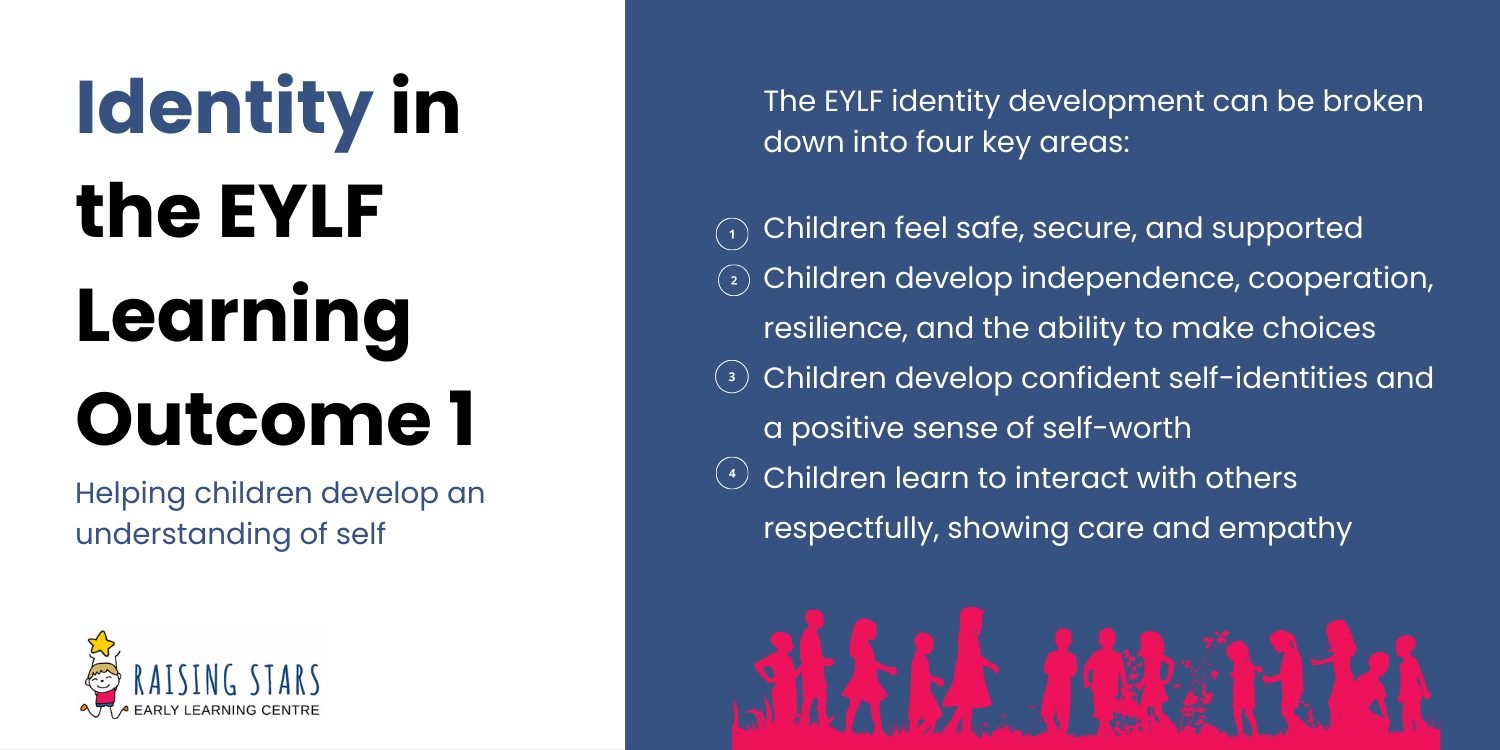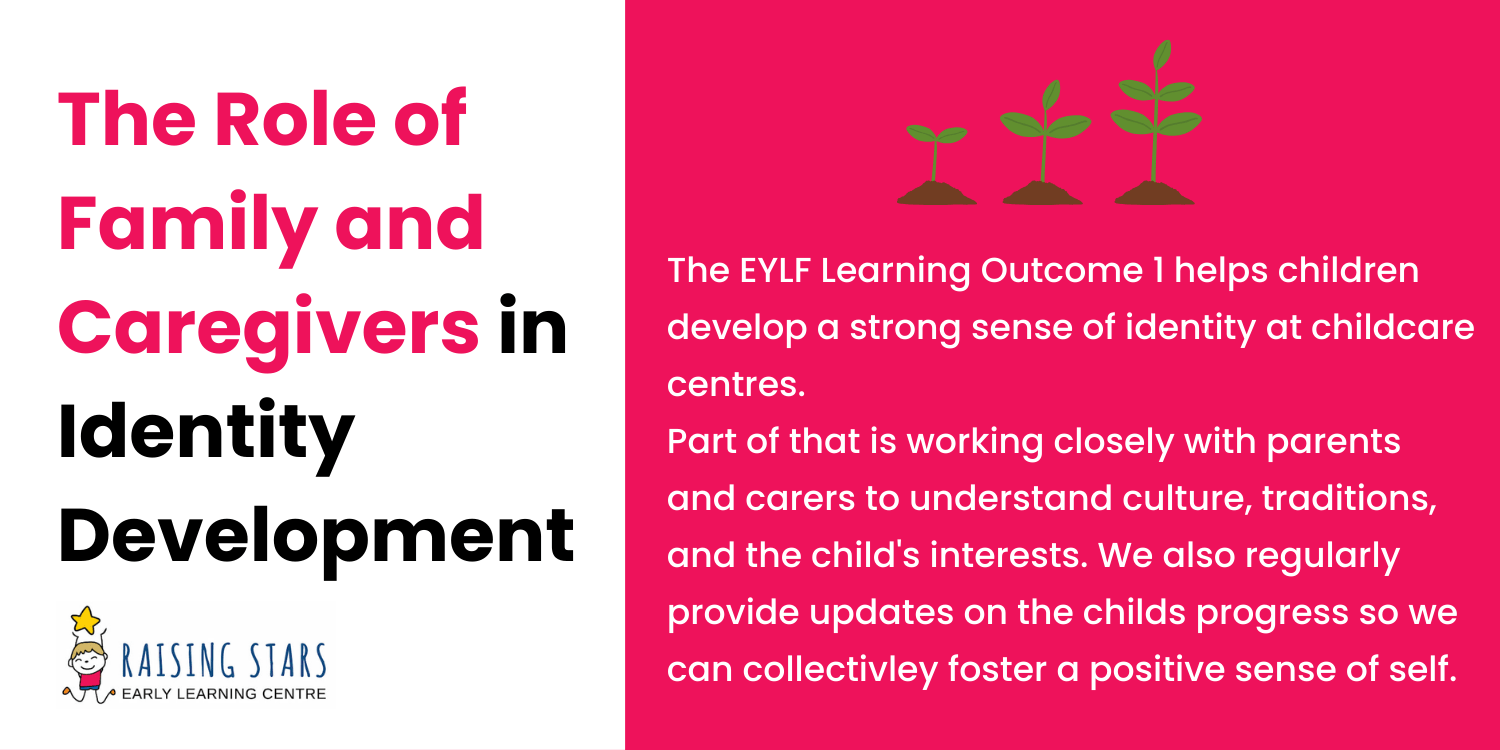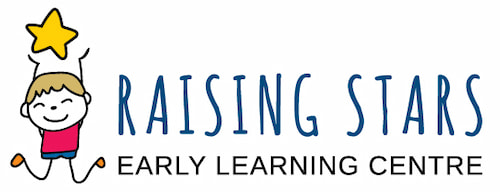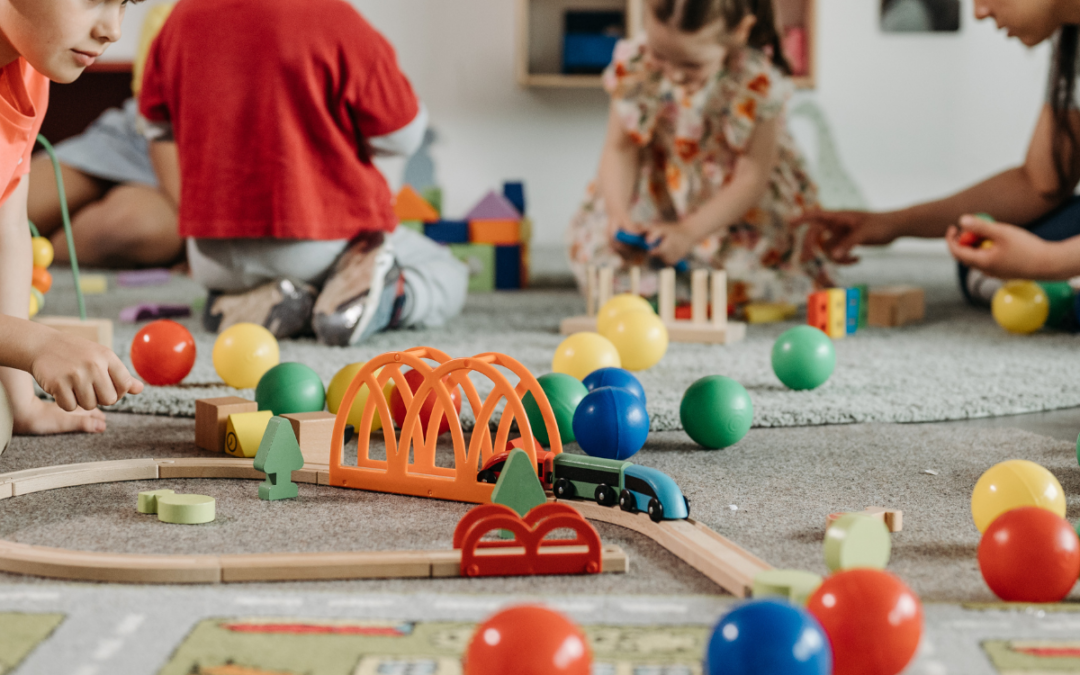Each child’s development journey is unique. Forming new relationships, learning how to communicate with others, and building a sense of self are key milestones in a child’s early development.
To ensure that children in childcare centres receive quality education for learning and development, the Australian Government developed the Early Years Learning Framework (EYLF) to set a standard for early childhood education. There are five learning outcomes of the EYLF – the first of centres around helping children create a strong sense of identity.
What Is The EYLF Learning Outcome 1?
Identity in early learning refers to how children develop an understanding of self. This includes recognising self, culture, a sense of belonging, and learning to handle new situations.
The EYLF breaks down identity development into four main areas:
- Children feel safe, secure, and supported
- Children develop independence, cooperation, resilience, and the ability to make choices
- Children develop confident self-identities and a positive sense of self-worth
- Children learn to interact with others respectfully, showing care and empathy

Children feel safe, secure, and supported
Children need to feel safe and cared for during the early years of development. Childcare centres create clear routines around playtime, meal time, and rest to provide predictability in what to expect each day. Over time, children become more comfortable in the childcare environment and the routines, and more receptive to learning new things. Children who feel safe are more open to sharing feelings and asking for help, which develops strong emotional and communication skills.
Our child care educators pay close attention to each child’s needs, responding when help is needed. Children gradually learn to trust our child care educators and staff, allowing for a stronger influence on learning and development.
Children develop emerging autonomy, inter-dependence, resilience, and agency
Part of identity development is discovering personal capabilities. Children who try doing things independently gradually become more aware of what can be achieved without help. Success builds a sense of agency, while setbacks provide opportunities to build resilience and bounce back from challenges.
As educators, we provide children with simple tasks like tidying up toys, preparing snacks, or choosing activities – these are opportunities for children to make independent decisions and take action. Children who actively participate are encouraged to exercise independent decision-making alongside peers through discussions.
Children develop knowledgeable, confident self-identities, and a positive sense of self-worth
A strong self-identity involves knowing who you are with respect to culture and heritage. As educators, we encourage children to share stories about families, culture, and personal experiences that build a sense of self.
When children share thoughts and feelings, our childcare educators practice active listening and ask questions that support the exploration of personal perspectives. As children gain a clearer understanding of self, their confidence in interactions with others will increase.
Children learn to interact in relation to others with care, empathy, and respect
A child’s identity is connected to relationships with others. Children who have a positive sense of self are more likely to interact well with others and build respectful relationships.
Our child care educators act as role models for children to learn how to be kind and respectful to others. During group play and collaborative activities, children learn to share, take turns, and work together under the supervision of our educators who step in for teachable moments. Empathy and respect become guiding values that remain as children grow.
The Role of Family in Identity Development
The EYLF Learning Outcome 1 helps children develop a strong sense of identity at childcare centres. At home, caretakers in the family also play a big part in supporting identity development for children. Our child care educators and staff work closely with parents and carers to understand culture, traditions, and the child’s interests.
By providing updates on the child’s progress at childcare, we work with parents to provide opportunities that foster a positive and confident identity, setting a foundation for future learning.


